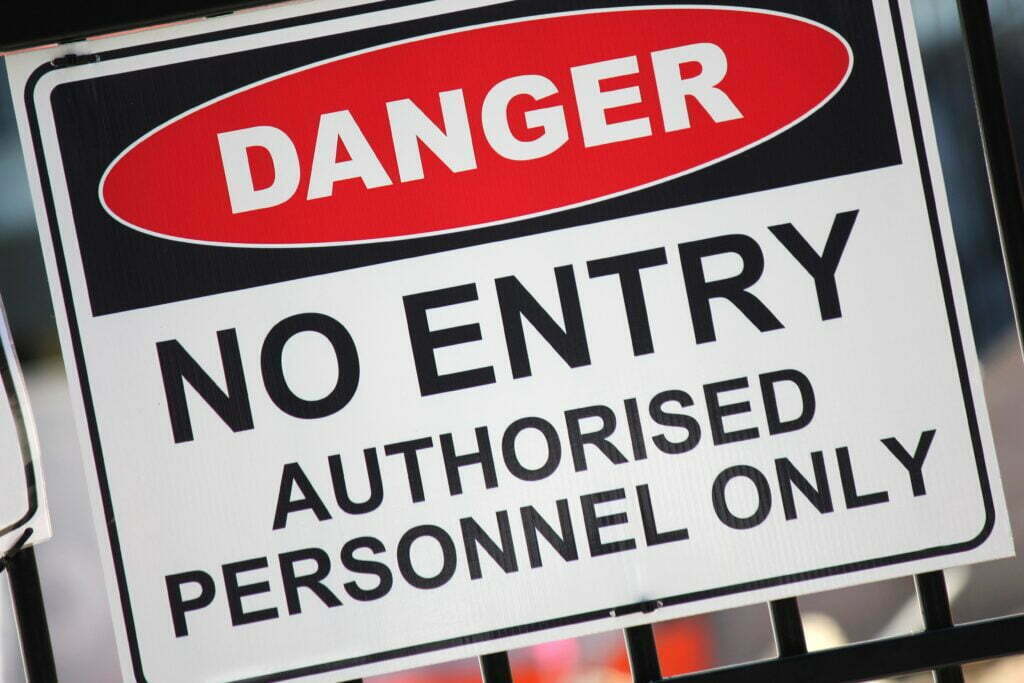When it comes to our health, we want to be able to trust our doctors. Especially when dealing with a workers’ compensation case. You want to make sure your doctor truly has your best interests at heart. So can your employer or adjuster talk to your doctor behind your back? Doesn’t that seem like a breach of trust?

It’s an unfortunate truth, but yes, it is legal. And they do — all the time. It wasn’t always allowed, but very often it happened anyway. However, successful lobbying with former Governor McCrory leads to a huge change in the law. Thanks to these new laws, employers can talk to your doctor and are not required to tell you that the conversation occurred or what they talked about.
Under the old laws, the adjuster or employer had to not only submit their inquiries in writing but also had to share a copy with you before they sent it to your doctor. This would give you a chance to look it over and ask any questions you might have. You could even ask for something to be added — which seems like a very fair arrangement. They could communicate with your doctor, and you still knew what was going on.
So why did insurance adjusters and employers want this changed? Well, based on the fact that they lobbied the government to change the law, it doesn’t seem like a huge leap to infer that they had a motive. And that motive seems to be their desire to communicate with your doctor without your knowledge.

If you take on a dangerous job, you understand that there’s a certain amount of risk that goes along with it. Even so, even those who work dangerous jobs deserve access to fair workers’ compensation. You should have confidence that if something were to happen to you while at work, you would be taken care of. Unfortunately, this is not the case for two workers at Raleigh’s Central Prison.

There’s an expectation that working at a prison is a dangerous job, and employees go through a lot of preparation to ensure that they are ready for that environment. However, things sometimes slip through the cracks, and unpredictable behavior can end in injury. This is what happened to Rosie Andersen and Laura Harmon. Andersen was directly attacked by an inmate, and Harmon was injured when a fight broke out in her office. Both women filed for workers’ comp after sustaining serious injuries.
However, both have run into several difficulties with their claims. The state has been incredibly slow in paying for treatment. Both women have reported medical bills piling up that their insurance should be covering. They also say that the insurance companies have been pressuring them to return to work despite the fact that neither feels ready.
You should never be made to feel forced to return to work or to pay for medical expenses that are covered by your workers’ comp insurance. The state needs to step up its game and take responsibility for its employees. If you have been injured at work and the insurance company is behind on payments or pressuring you to return to work, you should contact an attorney immediately.

Have you ever heard of a Board Certified Specialist in Workers’ Compensation? Do you know what it is and the high level of expertise that comes with this recognition? Read on to learn more about this important designation.

Hiring an attorney is a big decision. Your attorney is largely responsible for how your case will play out. You don’t want to pick just anyone. However, if you’ve never hired an attorney before, it may be difficult to know what to look for in a lawyer. You’re going to want someone who’s experienced and has a history of winning awards and settlements. But how do you know if an attorney is really as experienced as they say?
One way to tell is by looking for a Board Certified Specialist in workers’ compensation. Not just any attorney can become Board Certified. The North Carolina State Bar is the government agency that licenses and monitors attorneys. They only distinguish a very, very small number of attorneys as Board Certified Specialists.
The first requirement is that an attorney must have at least five years of experience practicing primarily workers’ compensation law. Once they have that experience under their belt, they can submit an extensive application detailing various cases that they’ve handled.
They must also undergo many hours of continuing education and have their work evaluated by a committee of other attorneys. Finally, once they’ve accomplished all of that, they must take a day-long, written examination, which has been failed by many seasoned attorneys.

At Oxner + Permar we are proud to have a large team of Board Certified Specialists. We understand that a workers’ compensation claim is important to you and your future. We want to make sure that we are as prepared as possible to take on your case.
If you’ve never dealt with a court case before, the thought of hiring an attorney can be a little intimidating. Do you really need one? How do you hire an attorney? And then there’s the dreaded question: How much is it going to cost me? Hiring an attorney might be easier and more pain-free than you think. So let’s take a look at what’s involved.

The answer to this question depends on the type of case you’re dealing with. If you’re facing a criminal charge, it’s almost always recommended that you hire an attorney. In civil cases, such as a dispute over a contract or property rights, it may be possible to represent yourself in court. However, if the case is complex or you’re not familiar with the law, it’s best to hire an attorney.
The cost of hiring an attorney varies widely and depends on many factors such as the complexity of your issue, the location of the attorney, their experience level, and the type of legal representation you need.
It can also depend on a law firm’s decision. Of course, every firm handles fees differently. Some may charge an hourly rate, while others may offer a flat fee for certain services.
At Oxner + Permar, we work on a contingency fee basis. This means if you don’t get paid, we don’t get paid. In other words, if your claim is denied, you don’t owe us anything. This takes some of the risks out of hiring an attorney, and you can be sure that your attorney has the incentive to win your case outside of just wanting to help you.
Ideally, you won’t be denied — so what’s it going to cost if you do win your case? Our fees are based on the permanent award at maximum medical improvement or a settlement. There are other less common contingencies, like receiving Social Security Disability with an offset or receiving temporary partial disability. However, the Industrial Commission has to approve all of our fees, so you can be sure that they’ll be fair. Typically they approve a fee of 25%. We know some firms ask for more, but our policy is to never ask for more than 25% of your overall settlement. As for temporary benefits, we only take fees on disputed or litigated benefits.

Hiring an attorney is a lot like hiring any other professional. You should do your research and make sure that the attorney you’re considering has experience in the area of law that you need help with. You should also look for reviews from past clients to get a better idea of what it’s like to work with them.
Once you’ve narrowed down your list of potential attorneys, you should contact them and ask any questions you may have. You should also make sure that you feel comfortable with the attorney and that they understand your situation.
Honestly, all in all, it’s just as easy as picking up the phone and giving us a call. We’ll connect you to one of our attorneys who will evaluate your case. We’re happy to give you advice even if you don’t end up hiring us. In fact, it could be that it’s not in your best interests to hire an attorney, in which case we’ll advise you accordingly.
We recently had a client who said to me, “I travel a lot for business. If I’m hurt while on a trip, am I covered by workers’ compensation?” This is an excellent question. As a general rule, workers’ compensation is designed to protect you while you are at work and doing your job. So what happens when your job takes you out of the office or away from your work site? Will workers’ compensation cover injuries such as from car accidents on business trips?

The good news is, yes! You are covered while on a business trip. The reason is that the entire purpose of your trip is work-related. Therefore, in most circumstances, any injury that occurs is going to be while you are performing your job.
This includes automobile accidents. Even if you were at fault, you are still eligible for workers’ compensation. This is because workers’ comp is a no-fault system. Its purpose is to cover lost time and wages due to a work injury; the fault is not taken into account when determining workers’ comp. Therefore, workers’ comp does not treat an automobile accident any differently than it would treat a fall in the workplace.
Workers’ comp will even cover you when you’re traveling out of state or out of the country, provided you are traveling for business. And this does not just apply to injury — if you become ill while in a foreign country, you could qualify for benefits.
